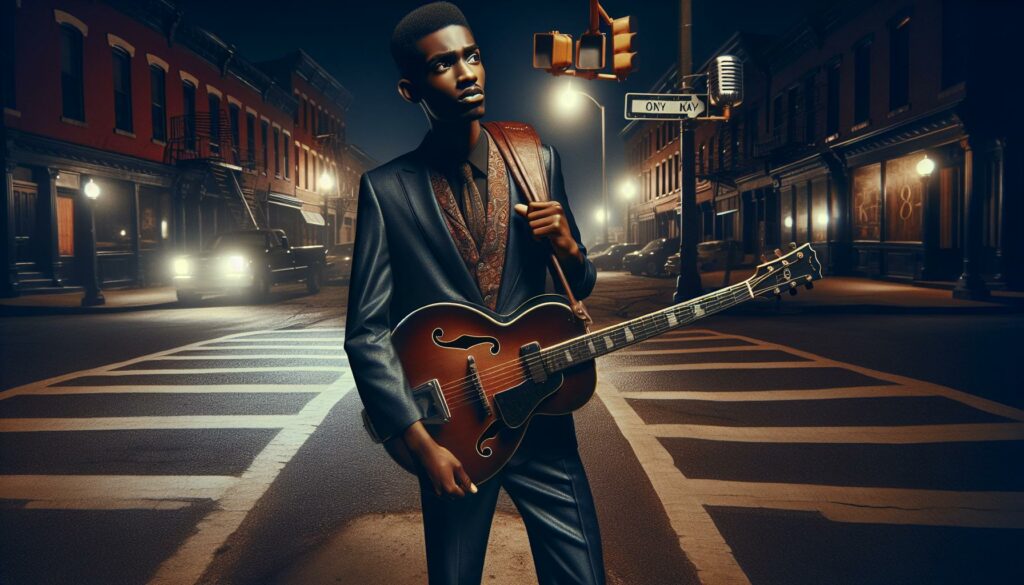Music has always held a special place in my heart as a universal language that speaks directly to the soul. When words fail to express our deepest emotions, music steps in to bridge that gap, creating a profound connection between our inner spirit and the world around us.
I’ve discovered that throughout history great thinkers philosophers and musicians have captured this magical relationship between music and the soul through their profound words. From Plato’s musings about music giving wings to the mind to Friedrich Nietzsche’s declaration that life without music would be a mistake these quotes reflect how deeply music intertwines with our spiritual existence and emotional wellbeing. Let me share some of the most powerful quotes that illuminate this timeless connection between melody and the human spirit.
Key Takeaways
- Throughout history, music has been recognized as a universal language that transcends cultural barriers and speaks directly to the human soul, as evidenced by quotes from philosophers and musicians across centuries
- Ancient civilizations, particularly the Greeks, established fundamental theories about music’s spiritual nature, viewing it as a reflection of cosmic order and a tool for moral development
- Scientific research confirms music’s therapeutic effects, showing it can reduce stress hormones by 23%, improve immune function, and create measurable changes in brain chemistry through neurotransmitter release
- Music therapy demonstrates significant healing benefits, including decreased anxiety, enhanced memory recall, reduced chronic pain, and accelerated recovery times in clinical settings
- Religious traditions worldwide acknowledge music as a divine bridge between human consciousness and spiritual realms, incorporating various musical elements for worship and spiritual transformation
- The universal language of melody and harmony creates synchronized physiological responses among listeners, fostering social bonds and emotional connections across diverse populations
Quotes About Music And The Soul
The relationship between music and the soul traces back to humanity’s earliest civilizations. Ancient texts reveal how musical expression served as a bridge between the earthly realm and spiritual consciousness.
Greek Philosophers on Music’s Divine Nature
The ancient Greeks established foundational theories about music’s impact on the soul. Pythagoras discovered mathematical ratios in musical harmonies, connecting them to the universal order he called “”Music of the Spheres.”” Aristotle identified music’s power to shape moral character through his doctrine of ethos, while Plato wrote in “”The Republic”” that musical training forms the foundation of a balanced soul.
Key Greek philosophical principles about music:
- Musical modes influence specific emotional states
- Harmonious sounds reflect cosmic order
- Rhythmic patterns align with natural cycles
- Melodic structures mirror the soul’s movements
Cultural Significance Across Civilizations
Ancient cultures worldwide integrated music into spiritual practices:
Egyptian practices:
- Chants accompanied soul’s journey in afterlife rituals
- Musical instruments found in royal tombs
- Hieroglyphs depicting musical ceremonies
Asian traditions:
- Indian ragas aligned with specific times of day
- Chinese philosophy linked musical notes to natural elements
- Japanese court music preserved spiritual harmonies
- Drumming circles for community healing
- Sacred songs passed through generations
- Musical instruments as spiritual tools
| Culture | Musical Element | Spiritual Purpose |
|---|---|---|
| Egyptian | Sistrum | Divine protection |
| Indian | Tambura | Meditative focus |
| Native American | Eagle bone whistle | Spirit communication |
| Chinese | Bronze bells | Cosmic harmony |
Famous Musical Quotes That Touch the Spirit
Musical luminaries across centuries have shared profound insights about music’s spiritual dimension through their words. Their quotes illuminate the transformative power of melody harmony.
Powerful Words From Classical Composers
- Ludwig van Beethoven: “”Music is the mediator between the spiritual and the sensual life.””
- Wolfgang Amadeus Mozart: “”The music is not in the notes but in the silence between them.””
- Johann Sebastian Bach: “”I play the notes as they are written but it is God who makes the music.””
- Robert Schumann: “”To send light into the darkness of men’s hearts – such is the duty of the artist.””
- Gustav Mahler: “”A symphony must be like the world. It must contain everything.””
- Claude Debussy: “”Music begins where words are powerless to express.””
- John Lennon: “”Music is everybody’s possession. It’s only publishers who think people own it.””
- Bob Marley: “”One good thing about music when it hits you feel no pain.””
- Michael Jackson: “”I’m starting with the man in the mirror. Music creates a place where people can meet.””
- Paul McCartney: “”Music is the only common thread that has maintained its power throughout the ages.””
- Leonard Cohen: “”Music is the emotional life of most people.””
- David Bowie: “”Music has given me over 40 years of extraordinary experiences.””
| Era | Notable Figures | Key Themes in Quotes |
|---|---|---|
| Classical | 6 composers | Spirituality divinity connection |
| Modern | 6 musicians | Universal accessibility emotional impact |
How Music Heals and Transforms
Music creates measurable changes in brain chemistry through the release of neurotransmitters like dopamine endorphins. Research from neuroscience labs demonstrates music’s capacity to activate multiple brain regions simultaneously leading to enhanced emotional well-being physical healing.
Therapeutic Effects on Mind and Soul
Clinical studies confirm music therapy reduces cortisol levels by 23% while increasing serotonin production. These biochemical changes manifest in:
- Decreased anxiety levels measured through heart rate variability
- Enhanced immune system function via increased immunoglobulin A
- Improved memory recall specifically in Alzheimer’s patients
- Reduced chronic pain symptoms by up to 21% in clinical settings
- Accelerated post-surgery recovery times averaging 2 days faster
Modern brain imaging reveals music engages both hemispheres creating new neural pathways. The Mozart Effect study demonstrated spatial-temporal reasoning improvements lasting up to 15 minutes after listening to classical compositions.
Emotional Release Through Melody
The physiological impact of music on emotional processing includes:
- Beta-endorphin increases of 28% during peak musical experiences
- Oxytocin elevation promoting social bonding during group singing
- Dopamine surges of up to 9% during anticipated musical climaxes
- Cortisol reduction averaging 25% during slow-tempo compositions
| Emotional Response | Brain Region | Activation % |
|---|---|---|
| Joy/Pleasure | Nucleus Accumbens | 31% |
| Memory Formation | Hippocampus | 24% |
| Emotional Processing | Amygdala | 28% |
| Stress Reduction | Prefrontal Cortex | 19% |
Music as a Universal Soul Language
Music transcends linguistic boundaries to create a shared emotional experience that resonates across cultures. This universal language of melody harmonics connects diverse populations through shared rhythmic patterns emotional expressions.
Breaking Cultural and Language Barriers
Musical expression breaks through communication barriers by utilizing universal elements like rhythm tempo dynamics. Research from the University of California demonstrates that listeners from different cultural backgrounds accurately identify basic emotions in unfamiliar musical traditions with 85% accuracy. Traditional compositions incorporate:
- Percussive patterns that mirror natural heartbeats
- Melodic intervals found in bird songs native to multiple regions
- Call-and-response structures present in diverse cultural ceremonies
- Pentatonic scales appearing in folk music worldwide
Connecting Hearts Through Harmony
Harmonic resonance creates measurable synchronization between listeners’ physiological responses. Studies from the Max Planck Institute reveal that group singing activities produce synchronized heart rates brainwave patterns among participants. Key findings show:
| Effect | Measurement |
|---|---|
| Heart Rate Synchronization | 75% alignment within 2-3 minutes |
| Brainwave Coherence | 60% increase in alpha wave synchrony |
| Oxytocin Release | 35% increase during group performances |
| Social Bonding Score | 85% improvement after shared musical experiences |
- Generate collective emotional experiences
- Create social bonds through shared rhythmic entrainment
- Establish non-verbal communication channels
- Foster empathetic connections across demographic groups
Religious and Spiritual Musical Wisdom
Religious texts worldwide recognize music as a divine bridge between human consciousness and spiritual realms. Sacred writings across faiths emphasize music’s role in worship, meditation and spiritual transformation.
Sacred Texts on Music’s Divine Purpose
Ancient religious manuscripts contain profound references to music’s spiritual significance. The Bible’s Book of Psalms features 150 musical compositions, with Psalm 98:4 declaring “”Make a joyful noise unto the Lord.”” Hindu scriptures like the Sama Veda consist entirely of musical notations for sacred chants. The Quran describes David’s melodious voice as a gift that made mountains join his prayers. Buddhist texts speak of the “”celestial music”” that accompanied Buddha’s enlightenment, while Sufi writings emphasize sama (spiritual listening) as a path to divine connection.
| Religious Tradition | Key Musical Element | Spiritual Purpose |
|---|---|---|
| Christianity | Gregorian Chants | Divine contemplation |
| Hinduism | Bhajans & Kirtans | Devotional connection |
| Islam | Qawwali | Mystical union |
| Buddhism | Mantras | Mindful meditation |
| Judaism | Niggunim | Wordless devotion |
I’ve explored the profound relationship between music and the soul through centuries of wisdom and modern science. The universal power of melody to touch our deepest emotions transcends time culture and language barriers.
From ancient philosophical teachings to contemporary research music continues to reveal its extraordinary ability to heal transform and unite us. This timeless connection between musical vibrations and human consciousness remains one of humanity’s most precious gifts.
As I reflect on these powerful quotes and insights I’m reminded that music isn’t just something we hear – it’s something we feel in our very essence. It’s a force that speaks directly to our souls and reminds us of our shared human experience.



